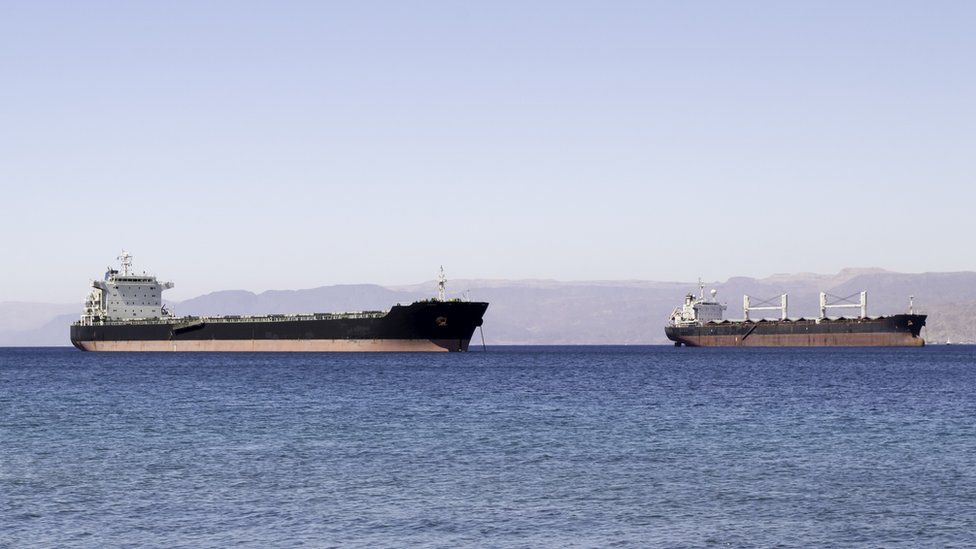
Red Sea attacks : US again hits Houthi targets as global shipping reels
WASHINGTON : The US Military on Thursday conducted a fifth strike against Iranian-backed Houthi rebel military sites in Yemen and against Houthi anti-ship missiles stationed for launch into the Red Sea. These strikes, aimed at missiles deemed “an imminent threat” to maritime traffic and US naval presence, underscore a mounting concern over regional security and global trade flow disruptions.
This latest operation marks a significant uptick in maritime hostility, with the Iran-aligned Houthi militia’s persistent attacks on commercial and naval vessels exacerbating the ongoing conflict. Notably, the Genco Picardy, a US-operated vessel, was the latest to bear the brunt of these hostilities in the Gulf of Aden.
US stance
For months, the Houthis have claimed attacks on ships in the Red Sea that they say are either linked to Israel or heading to Israeli ports. They say their attacks aim to end the Israeli air-and-ground offensive in the Gaza Strip that was triggered by the Palestinian militant group Hamas’ October 7 attack in southern Israel. But the links to the ships targeted in the rebel assaults have grown more tenuous as the attacks continue.
Amid these turbulent times, the Pentagon remains firm in its stance, emphasizing the defensive nature of US operations. Pentagon spokesperson Sabrina Singh clarified, “We are not at war with the Houthis.” Instead, she portrayed the actions as necessary measures of self-defense in response to the Houthis’ aggressive missile campaigns against “innocent mariners.”
The strategy pursued by US President Joe Biden– a blend of limited military strikes and sanctions – appears aimed at preventing a wider Middle East conflict even as Washington seeks to punish the Houthis, security and military experts say.
Biden on Thursday acknowledged that the strikes had not halted attacks by the militants but said the US military response would continue. “Are they stopping the Houthis? No. Are they gonna continue? Yes,” Biden told reporters aboard Air Force One.
Maritime menace
The Houthi militia’s unabated aggression, including a claim of targeting the American ship Chem Ranger, poses a severe threat not only to regional stability but also to critical global trade routes. The attacks on the Red Sea passage, a crucial artery accounting for approximately 15% of the world’s shipping traffic, have prompted major shipping lines to reroute, significantly impacting global supply chains and economies, particularly Egypt’s revenue from the Suez Canal.
The alternative shipping route around South Africa’s Cape of Good Hope can add 10-14 days to a journey compared to passage via the Red Sea and Suez Canal.
International repercussions
The crisis has cast a long shadow, affecting not just the immediate region but also global trade dynamics. Shipping companies, forced to alter their routes, face increased operational costs and logistical complexities. Ports across Europe are bracing for potential congestion, while alternative routes are being considered to mitigate the disruption caused by the ongoing conflict.
Continued Vigilance
As the situation unfolds, the US and its allies maintain a watchful eye, ready to respond to any imminent threats. The strikes, coupled with diplomatic efforts, reflect a multifaceted approach to addressing the complex challenges posed by the Houthi militia’s actions in the region.

